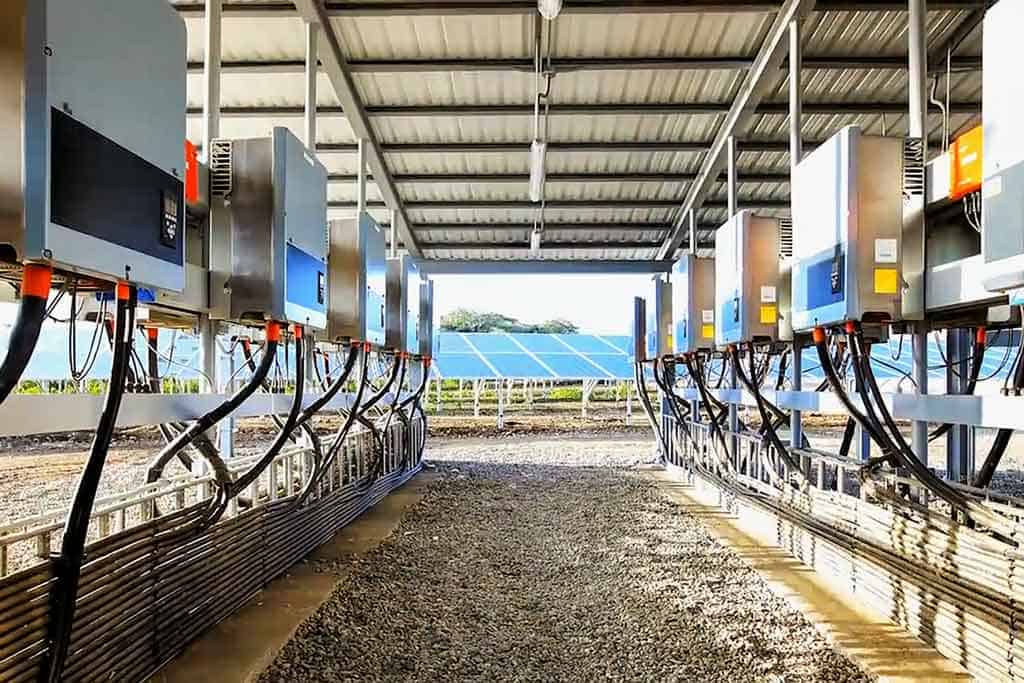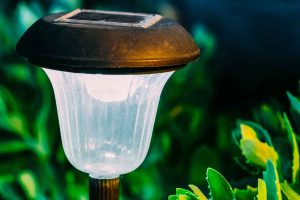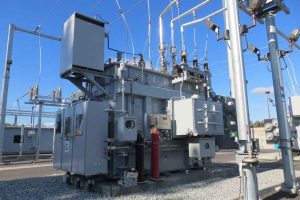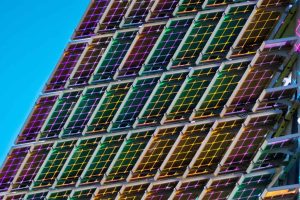You may be thinking about installing the best off grid solar inverter for home. But if you’re unfamiliar with inverters, you may wonder what the best inverter for a home is.
Home and business owners use inverters to convert DC (direct current) electricity from solar panels into AC (alternating current).
It’s essential to choose the best off grid solar inverter for home that suits your energy needs—and there are many factors to consider when making this decision.
What Is An Inverter?
An inverter produces alternating current (AC) by converting direct current (DC) to alternating current (AC). Inverters are used in solar panels, wind turbines, and other renewable energy systems.
They are also used in homes and businesses to convert DC power from solar panels into AC power for appliances such as computers, televisions, lights, and refrigerators.
An inverter can help save energy by converting DC power from your solar panels into AC power for the grid. Unit housing everything within itself.
The main advantage of a central inverter is that it can be placed in one location, allowing all the panels to share a single ground wire instead of having each forum have its dedicated ground wire.
Like they do with other systems like those using micro-inverters where each panel will always produce its full rated power no matter how many connected boards are due to how they’re wired up differently from string-based ones.
The first thing to consider when buying an inverter is how much power it can handle. You’ll need to know how many panels your system will use and how much power they produce before purchasing.
Figure Out What Kind Of Inverter You Want
The first thing to do when choosing the best off grid solar inverter for home is to decide what type of system you want. The options include:
- Grid-tied: In this system, your solar panels connect directly to the power grid and draw energy from it when there are not enough sun rays for your home or business. When more than enough solar energy is available, it goes straight into your battery bank for later use during a cloudy day or at night.
- Off-grid: An off-grid system does not connect directly to the power grid; instead, it stores all its electricity in batteries so that you can use it whenever needed—even if there isn’t enough sunlight at any given time of day.. A higher power rating is also essential to run larger appliances like electric stoves or heaters.
Choose A Suitable Inverter Type For Home Usage
The first step in choosing an inverter is to decide which type of inverter is right for your home. Three main types of inverters are grid-tied, battery-based, and hybrid. The type you choose will depend on your specific needs and goals.
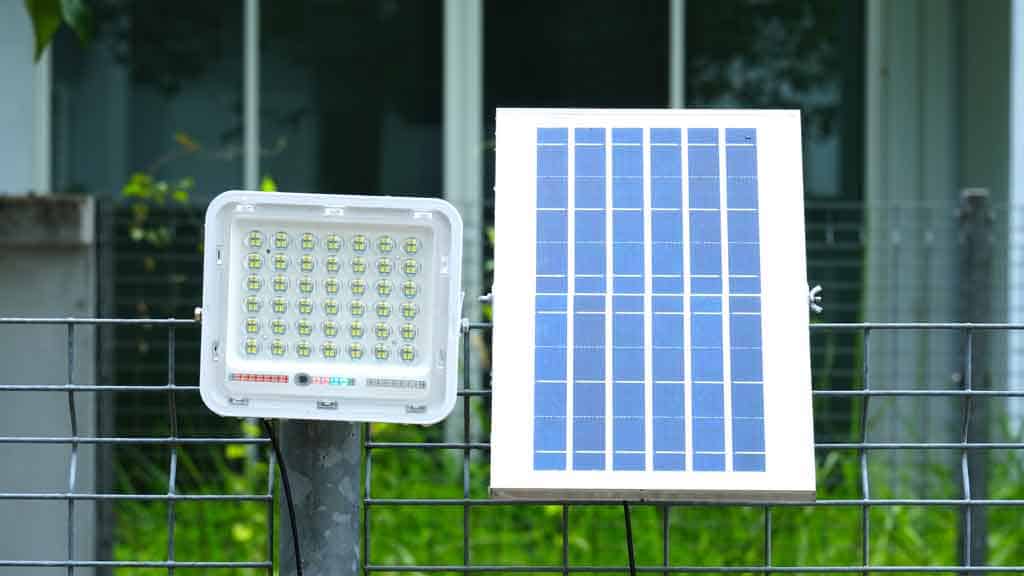
- Grid-tied: A grid-tied inverter is connected directly to the utility grid via a breaker or fuse box. This system style requires no battery bank, but it requires either a generator or power company connection in case of outages or brownouts (or blackouts).
These systems are ideal if you want maximum energy savings while also having access to power during emergencies without having to rely on backup generators that can be expensive and noisy at times.
- Battery-based: A battery-based solar panel system contains batteries that provide backup power during outages or brownouts.
This type also provides emergency lighting in complete blackout conditions where there isn’t even enough light coming through windows for people inside their homes.
Discover Why Green Energy Is Important For Your Home
Learn about the benefits of solar energy and how it can save you money on your energy bill. Schedule a free consultation with us, and we’ll help you find the right solar system for your home.
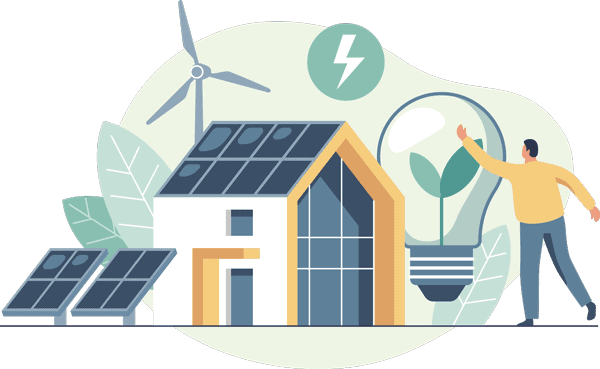
- Hybrid: Hybrid systems combine both battery banks for emergency backup with grid connections when possible, so they don’t have to rely solely on solar panels alone; however, these systems can still be susceptible
What Are The Three Most Common Types Of Inverters?
Inverters are devices that change DC power into AC power. There are three main types of inverters: string, central, and microinverters. Whatever works for your situation is up to you.
String inverters are the most common type used in residential solar systems today because they’re less expensive than central inverters and have more features than microinverters.
They use one or more strings of panels tied together by a combiner box at one end with output connections at the other that allow you to connect multiple lines if necessary.
The panel-level string inverter has built-in bypass diodes, so each panel receives its full rated voltage when any one of them is shaded or damaged.
All panels would see reduced voltage because they share a standard ground wire instead of having dedicated ground wires like other systems.
Like those using micro-inverters where each panel will always produce its full rated power no matter how many they have due to how they’re wired up differently from string-based ones.
These compact units offer good efficiency ratings but cost more upfront than centralized options since every panel needs its wiring harness and additional hardware.
It, such as disconnect switches, adds up quickly considering how much space these require compared to what could potentially fit inside one single unit housing everything within itself.
These compact units offer good efficiency ratings but cost more upfront than centralized options since every panel needs its wiring harness and additional hardware.
Such as disconnect switches which add up quickly considering how much space these require compared to what could potentially fit inside one single.
What Is An Off-Grid Solar Inverter, And Why Might You Need One?
When choosing the best off grid solar inverter for home , you may be wondering what exactly an off-grid inverter is and why you would need one. An off-grid solar inverter is an electronic device that converts DC power from your solar panels into AC power for your home.
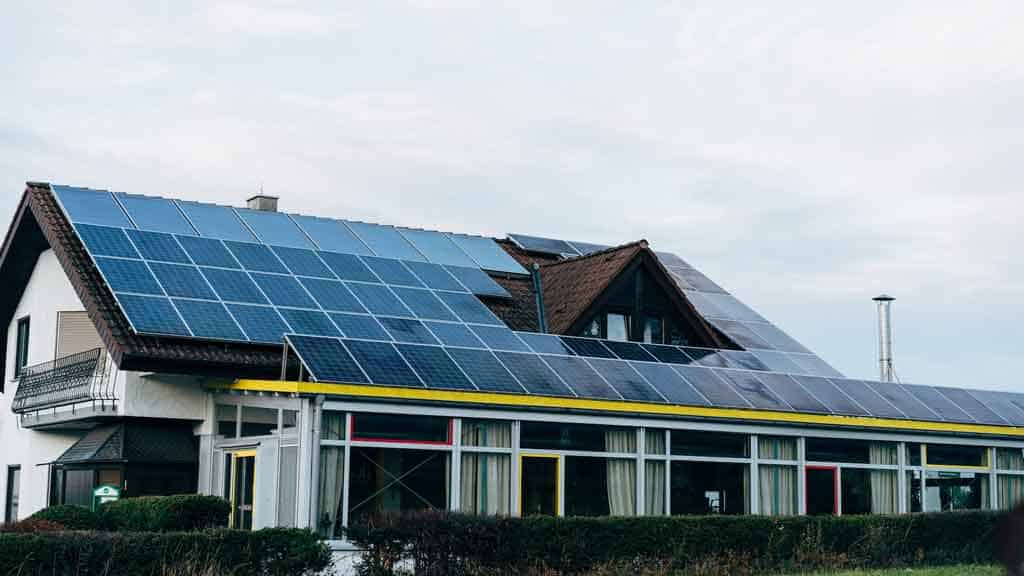
It means that even though it has a “grid” in its name, an off-grid solar inverter works without any connection to an existing power source like a utility company or public utility system.
Off-grid solar systems operate in remote locations without access to traditional forms of power. They’re also great if you want to control your energy needs by producing your electricity rather than relying on fossil fuels or other fuel sources from outside sources.
Inverters have become essential to our lives because they provide reliable energy wherever we go—and you don’t want just any old inverter.
Many different types are available today, and some are better than others depending on how much work they can handle and how long they’ll last before breaking down; this makes choosing one difficult unless you know what to look out for when buying one yourself.
The Right-Off-Grid Solar Inverter Ensures That Your Home Has Power At All Times.
Solar panels produce DC power, converted into AC power that runs appliances inside your home. Many different applications require the best off grid solar inverter for home, including telecom towers and mining operations, without access to utility grids.
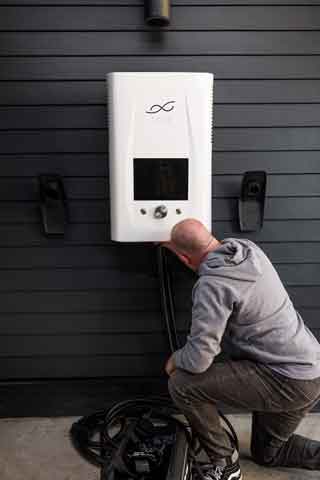
It would be best to consider your needs before choosing an off-grid solar inverter. If you want one or two small appliances running off a battery system, you can use the Renogy PWM Solar Controller. On the other hand, if you need something more powerful to handle all of your home’s electrical needs.
Inverters come in various sizes, from small, portable units capable of powering laptops and cell phones to larger systems that can run entirely at home outdoor solar lights. Your system size will depend on your specific needs.
How many lights, fans, televisions, and appliances will be running simultaneously? A smaller unit may suffice if you’re looking to power one or two devices during an emergency or camping trip.
What To Look For When Choosing An Off-Grid Solar Inverter
When choosing the best off grid solar inverter for home , there are several things to consider.
- First, you’ll need to ensure that the inverter is rated for your solar system. Its capacity matches the maximum power output of your PV panels and batteries. A good rule of thumb is that if you’re planning on using a single-phase system with panels rated at 6 kilowatts (kW), then the best off-grid solar inverter will be placed at 10 kW.
- Ensuring that your chosen model has enough storage capacity to run all day long with no breaks or interruptions in power generation is essential.
- For these systems, look for an inverter with at least twice the storage capacity needed for the battery bank, in other words.
- Third–and perhaps most importantly–you should look into whether or not this particular model offers high-efficiency levels since this will affect both costs and environmental impact over time.
If you are starting and don’t have much money to spend, the best off-grid solar inverter is for your needs. This device is designed specifically for small solar panels and can handle up to 300 watts of DC power input.
It’s also easy to install thanks to its user-friendly interface that allows anyone with basic computer skills to get up and running within minutes, which means that the inverter’s efficiency is essential.
The higher the efficiency, the more power your solar panels will generate and the less electricity you’ll need to buy from your utility company.
The Best Off Grid Solar Inverter For home: Summarize Which Type of Inverter Is Best For A Home.
- Use the same solar inverter for your home for a small solar array.
- A grid-tie inverter is an excellent choice for most homes and businesses, even those with limited or no access to utility power.
- If you want to add the best off grid solar inverter for home or business, choose a high-quality off-grid solar inverter from a reputable brand certified for all your electrical needs.
Inverters are not all created equal. Some models have higher efficiency ratings than others, which means they can convert a more incredible amount of energy from the sun’s rays into usable electricity for your home. In this regard, the best off grid solar inverter for home has an efficiency rating of at least 95% with no drop-off over time (known as “flat efficiency.
Consider The Size Of Your Home Solar System.
When choosing the best off grid solar inverter for home , there are a few things to consider. The first is how many panels you have and how much power they generate.
It would be best to think about how much energy you want to store. If you want to use it as a backup system, the electricity grid goes down, or the power line cuts out for some reason.
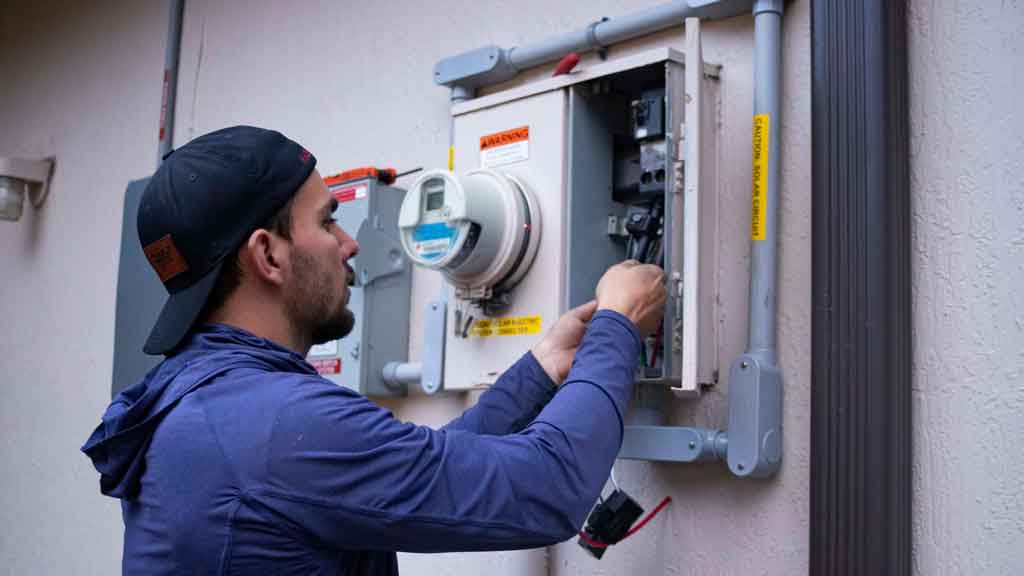
Then it can be helpful to have a large battery bank for your home solar system to function correctly and provide power inverter for extended periods without needing an outside energy source.
The size of your battery bank will also affect which kind of inverter is best for you—there are three types: grid-tied, grid-interactive, and pure sine wave. Grid-tied means that when there’s no sun available at night, this type will draw on energy from the utility company instead.
However, during peak sunlight hours, this type will only pull from its array since nothing else is available at that moment anyway. Grid interactive means this type only removes from its display during peak sunlight hours.
However, during nighttime hours when there’s no sun available, it can still draw on energy from either source depending on which option makes sense at any given time.
Determine Power Rating
The inverter’s power rating is measured in watts, calculated by multiplying volts by amps. Knowing your wattage is essential because it will determine how much electricity you can use at once.
This number also determines how many appliances you can run and the size of your solar system—the more extensive your solar system and, therefore, the more energy you need to generate, the higher power ratings work better for you.
A good rule of thumb is to get an inverter with a higher capacity rating if you want to run multiple appliances simultaneously. For example, if you have a two-bedroom house and want to run lights, other electronics, and devices like air conditioners or refrigerators all at once, then get the best off grid solar inverter for home with a higher wattage rating than recommended for single appliance use only.
Choose Your Solar Inverter Carefully
Off-grid solar inverters are essential for a home that uses solar power. Inverters are used to convert DC electricity into AC electricity which is what your household needs. This means that you need an off-grid solar inverter for your home to be powered at all times.
When choosing the best off grid solar inverter for home there are many factors to consider, and you must select the best one for your needs. For example, the size of your house, the amount of power it consumes on average, and how often you use appliances during the day/night cycle.
Inverters can also be used for backup power supply, so if you want backup power when there is no sun around, then this is something else that you need to consider, as well as the price tag.
Off-grid systems usually have a backup generator as well. In case you don’t have enough solar energy to power your home or business, there are many good quality off-grid solar inverters on the market, and it can be confusing.
The best way to find out is by reading reviews from previous customers who have used their products. This will give you a better idea of what’s available and if it meets all your requirements.
Conclusion
As you can see, there are many different types of inverters, and some are better than others. So, you must understand what kind of best off grid solar inverter for home . The good news is that most off-grid solar inverters come with a warranty that protects against defects in materials or quality for at least five years from the date of purchase.

